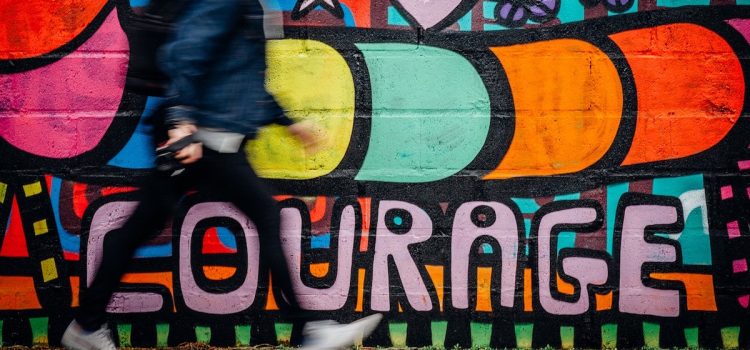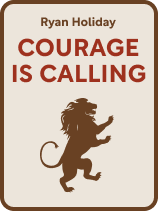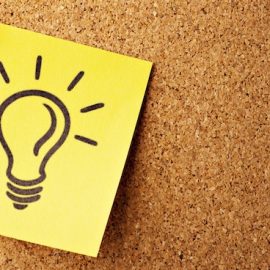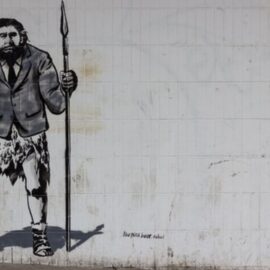

This article is an excerpt from the Shortform book guide to "Courage Is Calling" by Ryan Holiday. Shortform has the world's best summaries and analyses of books you should be reading.
Like this article? Sign up for a free trial here.
What does it mean to be brave? What’s the opposite of courage? How is bravery different from heroism?
Ryan Holiday’s Courage Is Calling teaches us the meaning of courage using principles from the ancient Greek philosophy of Stoicism. Holiday argues that every person has the innate ability to be courageous. The first step is to understand what that means.
Read more to learn how the Stoics explain what true bravery is.
What Is Bravery?
What does it mean to be brave? Holiday defines courage as doing the right thing even though you’re scared. We’re all afraid of getting hurt and losing what’s precious to us, but being brave means pushing that fear aside and following your life’s path regardless. This could mean anything from maintaining a difficult personal boundary with a loved one to standing up for a stranger who’s being harassed on the street.
| Courage as Defined in Western Philosophy For thousands of years, philosophers around the world have discussed courage’s role as a central virtue. The Greek philosopher Aristotle identified courage as the virtue between the extremes of cowardice—not having the fortitude to do what should be done—and foolhardiness—taking action when you shouldn’t. Aristotle also introduced the idea that courage is a moral habit that must be developed through practice. Later on, the Stoics named courage as one of their four primary virtues. In Stoicism, courage involves freeing yourself from fear so you can do what needs to be done. The Roman philosopher Cicero also identified courage as a way to combat excessive desire, pain, grief, excessive pleasure, and anger. Someone who has a great and courageous soul is indifferent to external circumstances, meaning no external force will stop them from doing the right thing. |
Bravery as the Opposite of Apathy
Holiday argues that the opposite of courage is not fear or cowardice: It’s apathy and despair. You can’t control all the evils in the world or the fear they inspire, but you can choose how you respond to them. If courage is overcoming fear and moving to action, apathy is giving into fear by choosing not to act.
Courageous people are driven by hope instead of fear. They believe in a better future and work toward it by trying to find solutions for the world’s problems. They always care about the suffering of others, finding meaning in their efforts to help.
Apathetic people convince themselves that they can’t make any real change. They protect themselves through their inaction, as not trying means never having to take risks or let anyone down. However, apathy and despair are self-fulfilling prophecies: The only way to guarantee that the world won’t get better is by never trying to improve it.
| How to Combat Feelings of Hopelessness Holiday argues that courageous people hold onto hope and try to effect positive change no matter what, but that’s far easier said than done. A constant stream of bad news can prompt feelings of hopelessness in the strongest person, and apathy often forms as a protective response to this hopelessness (rather than due to a true lack of care for the problems of the world). That being said, there are proactive ways you can combat hopelessness during times of crisis. Name the emotions you’re feeling. To begin regulating your emotions, you need to be able to label them. Look beyond the general malaise of hopelessness and try to uncover all its subtleties: anger, fear, grief, worry, helplessness, and so on. Meditation and journaling can help you work through these layered feelings. Protect your energy. Take care of yourself with a healthy diet, physical activity, and high-quality sleep. Take breaks when you need them, be kind to yourself, and make time for the activities that bring you joy. Cultivate meaningful relationships. Spend time with the people who care about you and support you. Opening up about your struggles may encourage them to share their own worries, and you can support each other. Talk to a mental health professional. Persistent hopelessness and apathy can have bigger implications for your health, contributing to disrupted sleep, changes in appetite, and diagnoses like anxiety and depression. When your coping strategies don’t work, talking to a therapist can help you work through the roots of your feelings and find strategies to improve your quality of life. |
Bravery vs. Heroism
Holiday also makes a distinction between courage and heroic action. Heroism is specifically courage in the service of other people. Heroes are willing to make great sacrifices to help others without any discernible benefit to themselves. According to Holiday’s definition, heroism always involves courage, but courageous actions aren’t always heroic.
| How Our Heroes Make Us Better Studies show that heroes play important psychological functions in our lives. These functions can be broken into three categories: Enhancement. Heroes offer motivation, hope, and inspiration to other people. Moral modeling. They provide an example of how to be “good.” Protection. They keep people safe from danger and evil. We turn to our heroes for inspiration during times of crisis. According to researchers’ findings, just thinking of heroes makes us feel safer and more powerful. This is especially true during times when our lives are under threat. The next time you find yourself in a moment of crisis, draw strength by thinking about your personal heroes. |
Holiday asserts that heroism surpasses everyday courage. It allows us to access a higher, almost divine state of being—what the Stoics referred to as “greatness of soul,” or megalopsuchia. Still, heroism cannot exist without everyday courage—developing your courage through ordinary moments of overcoming your fears prepares you for opportunities to be heroic when they come.
(Shortform note: The idea of “greatness of soul,” or megalopsychia, originated with Aristotle. (Though Holiday spells it megalopsuchia, megalopsychia is the more common spelling.) The term can also be translated as pride or magnanimity. For Aristotle, it was the midpoint between vanity and humility: a person being worthy of the honor they command for their external qualities, like wealth and status. Later on, the Stoics defined megalopsychia as a type of courage (andreia): specifically, as the ability to overcome adversity and undertake great actions for the good of others, matching Holiday’s definition of heroism.)

———End of Preview———
Like what you just read? Read the rest of the world's best book summary and analysis of Ryan Holiday's "Courage Is Calling" at Shortform.
Here's what you'll find in our full Courage Is Calling summary:
- Ryan Holiday's advice for how to be courageous in any situation
- How to break free from the fear of what other people think of you
- How to take control of your actions and make difficult decisions






